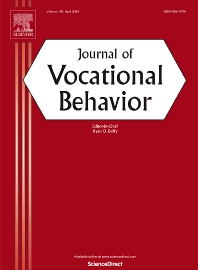Journals in Business
Journals in Business
- ISSN: 2667-2774
Journal of Business Venturing Design

- ISSN: 2352-6734
Journal of Business Venturing Insights

- ISSN: 2213-297X
Journal of Co-operative Organization and Management

- ISSN: 0929-1199
Journal of Corporate Finance

- ISSN: 0148-6195
Journal of Economics and Business

- ISSN: 1075-4253
Journal of International Management

- ISSN: 1042-444X
Journal of Multinational Financial Management

- ISSN: 1478-4092
Journal of Purchasing and Supply Management

- ISSN: 0969-6989
Journal of Retailing and Consumer Services

- ISSN: 0001-8791
Journal of Vocational Behavior
